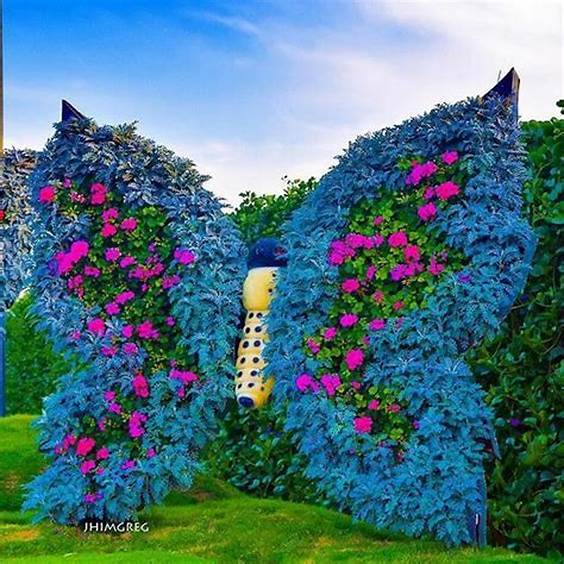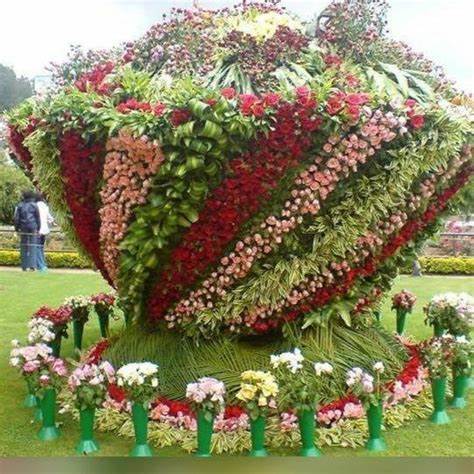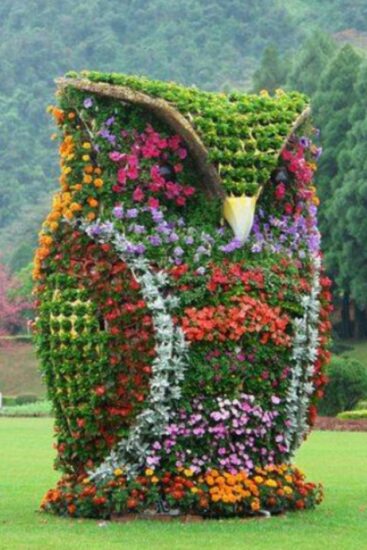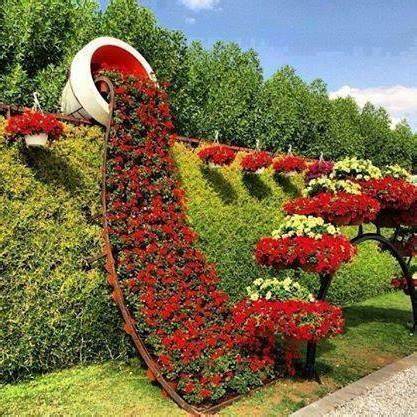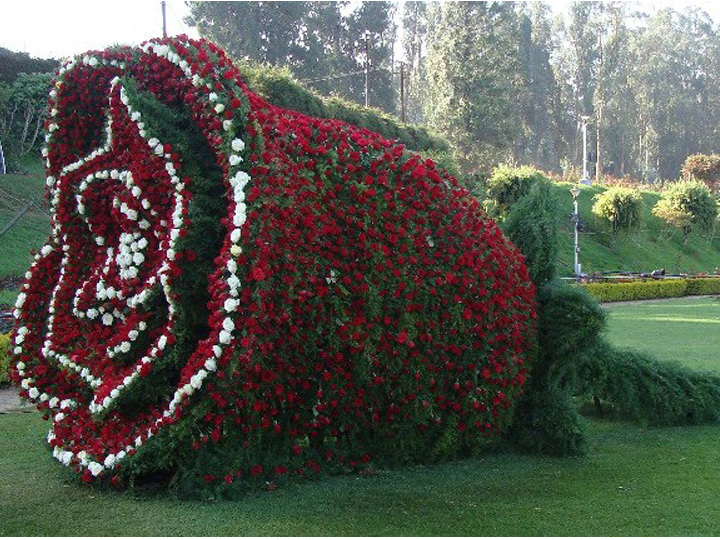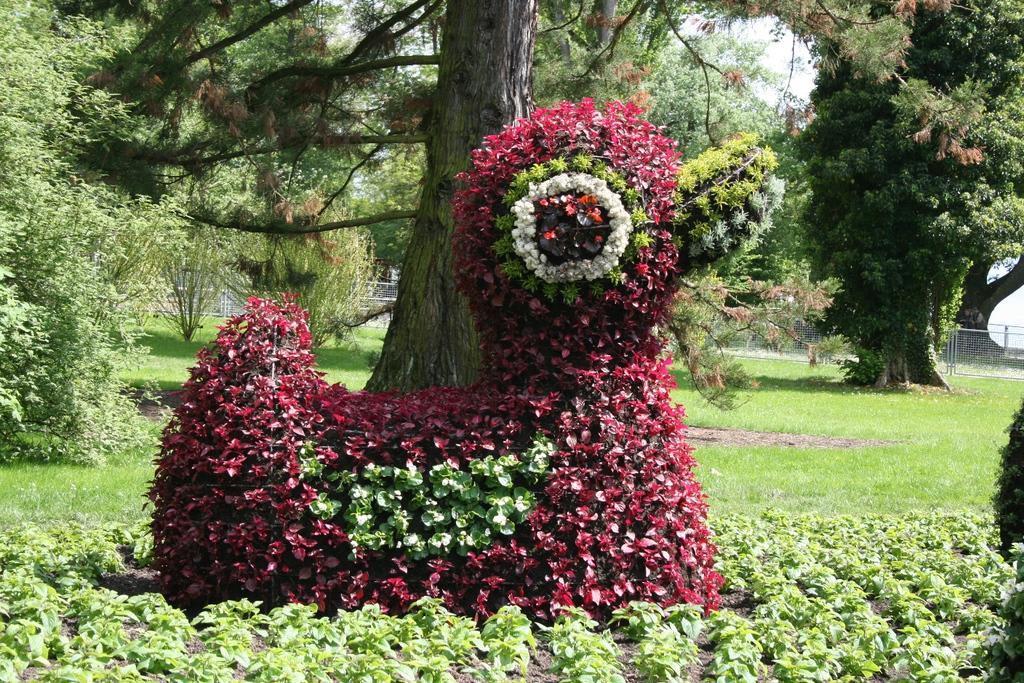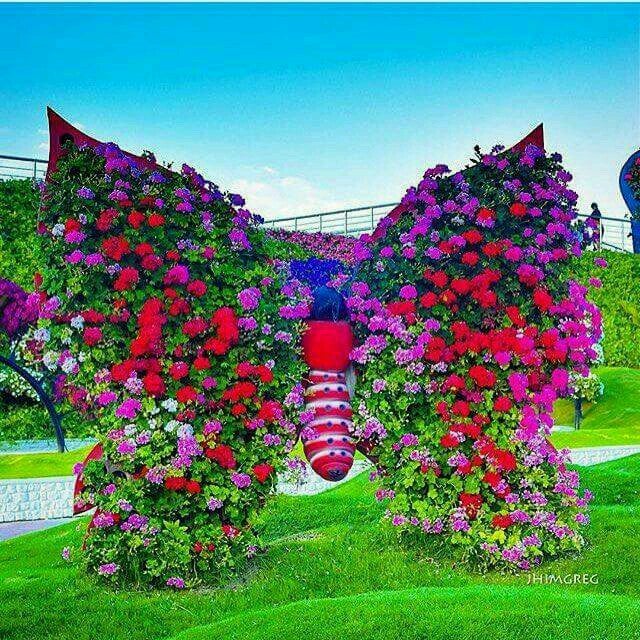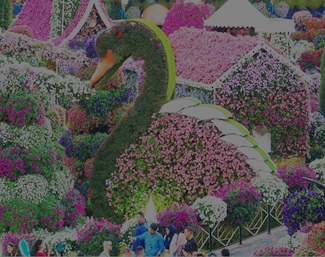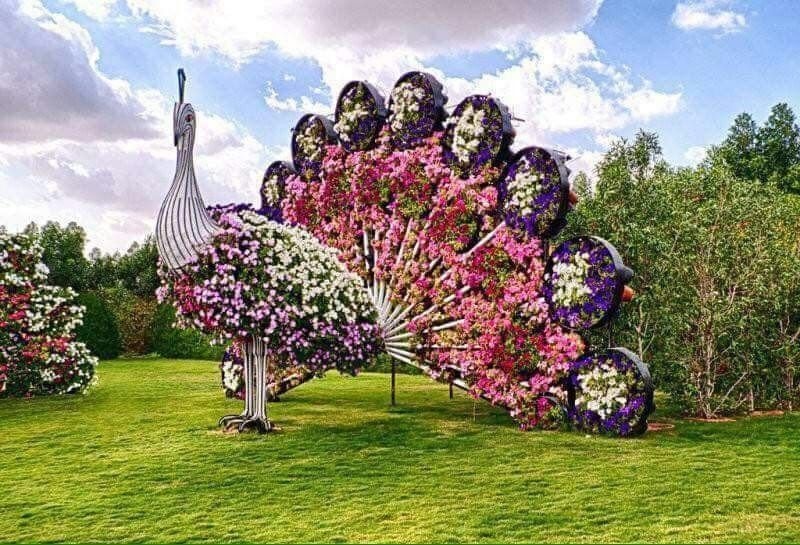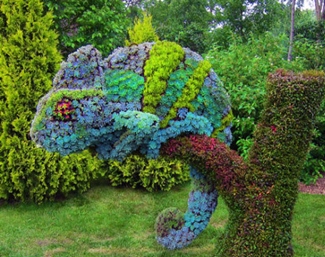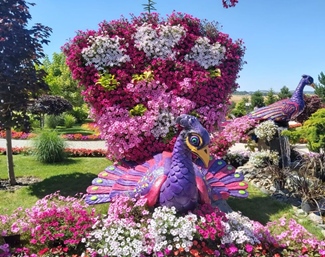The art of cutting and cutting shrubs, small trees and sometimes even herbaceous perennials into decorative or abstract forms is called topiary. Topiary can be the most exciting element in a garden with forms of birds, animals, beasts, people and much more. The term comes from the Roman word “Topiaria” meaning ornamental gardening. This art began in the first century AD. or even earlier.
Plants that have a lot of dark green foliage and ability, withstand frequent cutting and mowing, are suitable for topiary work. It takes many years to train and shape plants to achieve desired shapes and sizes. A lot of attention, a significant amount of work and a group of dedicated gardeners are involved in growing such plants. Since topiary plants will last a long time, careful preparation of the soil by deep digging is required before planting.
Topiary forms:
In topiary it is possible to achieve forms of different types. Simple shapes like a globe, sphere, dome, table, chair, cube are not difficult to achieve. These forms can be given without the aid of any prefabricated molded wire model.
When figures of birds, animals or people are to be formed, a lot of patience and endurance is required. These should be obtained by making a rough outline with wires and then train the bush along the frame and cut carefully over the years to get the desired shape. The branches are carefully tied to the frames without causing any damage.
It should be remembered that whatever shape is chosen, it should have a wider base. For example, a peacock standing over a substantial base such as a dome/cube is more impressive than standing on its own. When the base is made, the bird is shaped along the contours of the wire frame.
It can take about 3-4 years of cutting and training to get the general shape. Pruning the bush is not done randomly. The goal should be that all shoots or branches that can be trained into the framework should not be pruned. The shoot tips and foliage that tends to grow outside the frame should be trimmed regularly.
